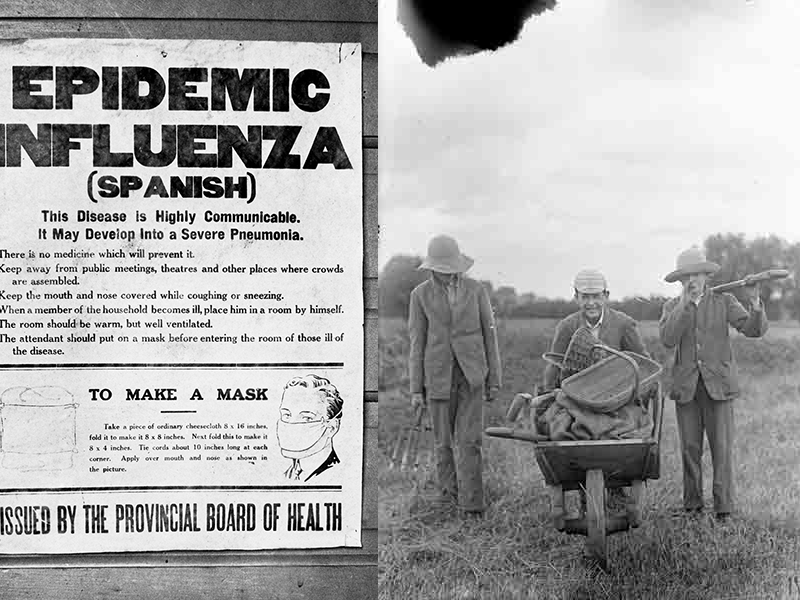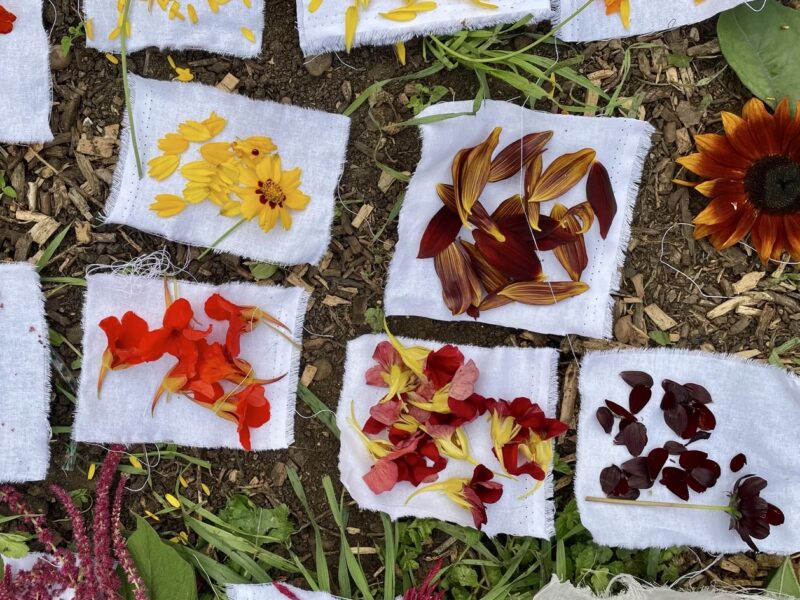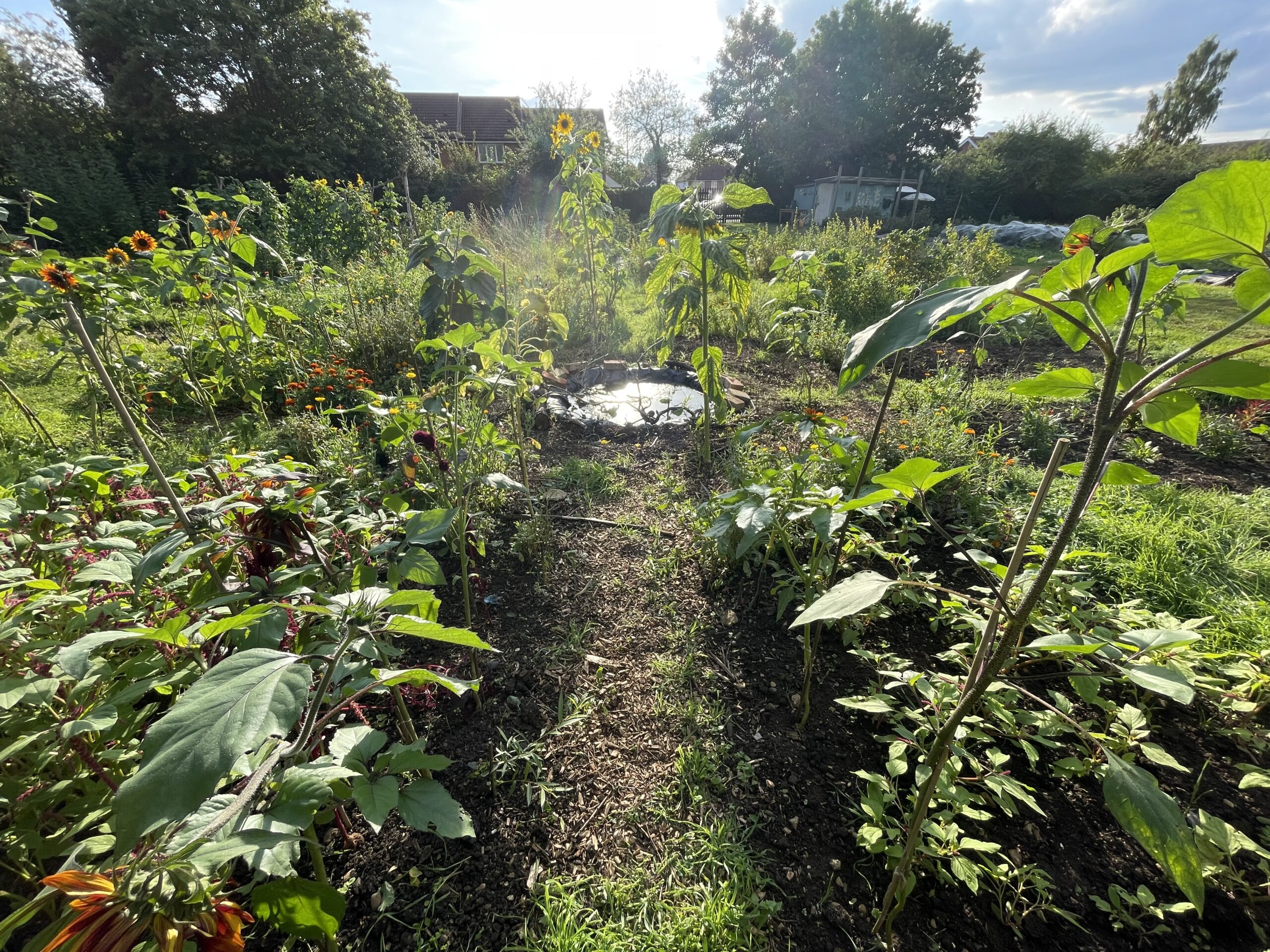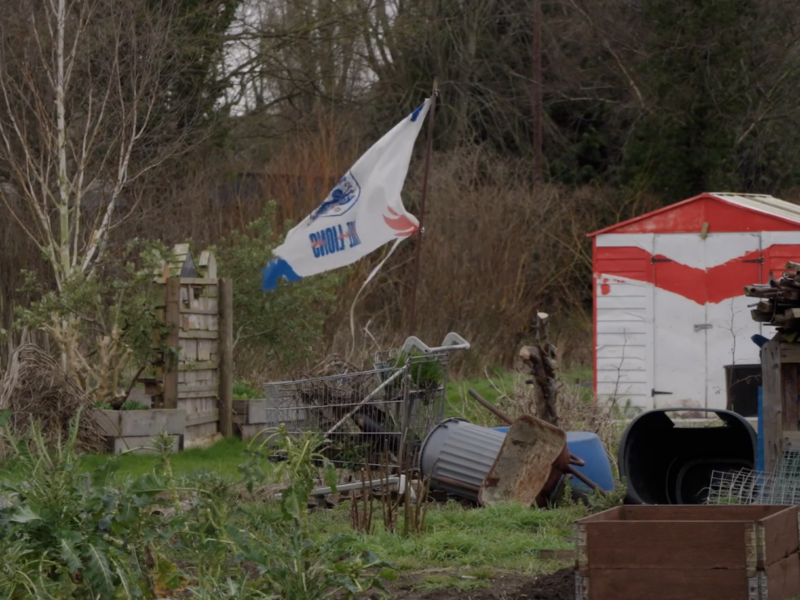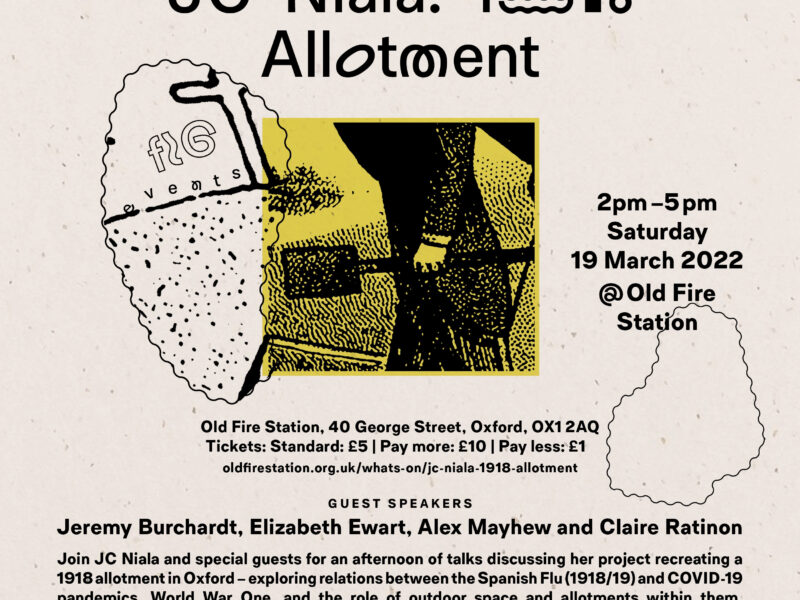Journal — September 2021
I keep thinking about a line in one of JC’s brilliant new poems, where the refugee speaker likens arriving at their allotment to paradise. Because this is exactly what it feels like to enter through the gates of Elder Stubbs on a sunny afternoon and follow her along the sprawling patchworks of colours and scents through to a winding woodland path that finally leads us to the green, living, leafy poetry stage: People really have made this place their paradise.
I almost have to pinch myself that I get to perform and listen to poetry here, in front of the row of green chairs under the fig tree, arranged around the 1918 plot’s harvested strawberry patch. It is immediately obvious how much love and time and care, how much knowledge and attention has been poured into this whole project, into the soil, into this event. There is a wheelbarrow full of paper party-bags and beautiful produce in a rainbow of colours for everyone to take home – small brown potatoes, corn, onions, impossibly large yellow courgettes.
We drink it all in – the little food station where we can taste the essence of past summer days in the form of the best strawberry jam I ever had, paired with a spread of cheese and crackers and cake and homemade elderflower. There is also rum in a nod to the past, as JC explains how soldiers in the First World War used to have to drink it three times a day mixed into all kinds of other drinks in order to put themselves into a state of being able to kill people. The past is here in a way we can see and touch – in the soil itself, in the beans and broccoli grown from heritage seeds, in the beautiful purple cabbages that have an intricate latticework of slug bites because, as JC tells us, she and her collaborator Sam decided to ‘cheat’ in the area of pesticides and not use any at all rather than the historically accurate ones such as arsenic…
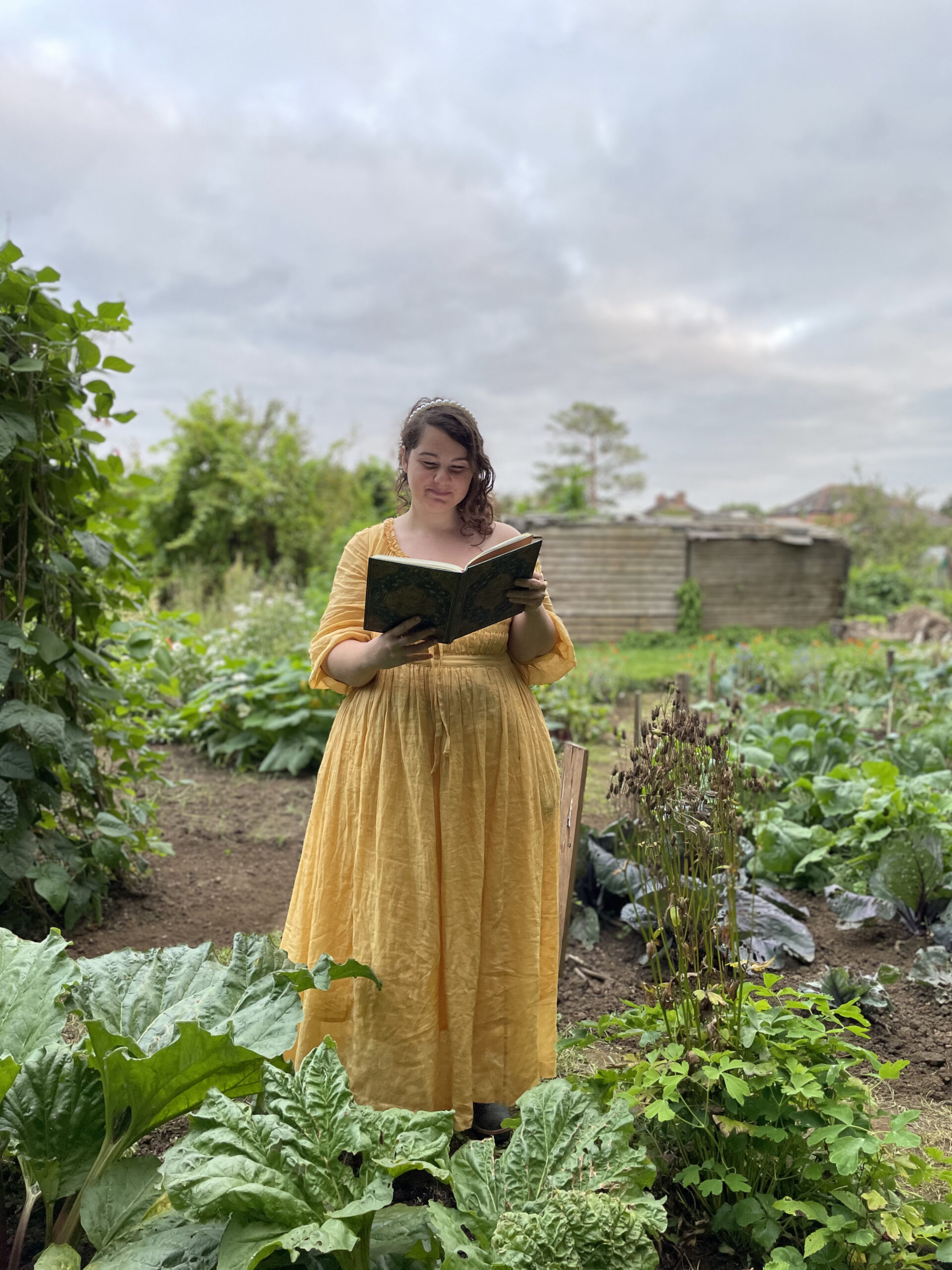
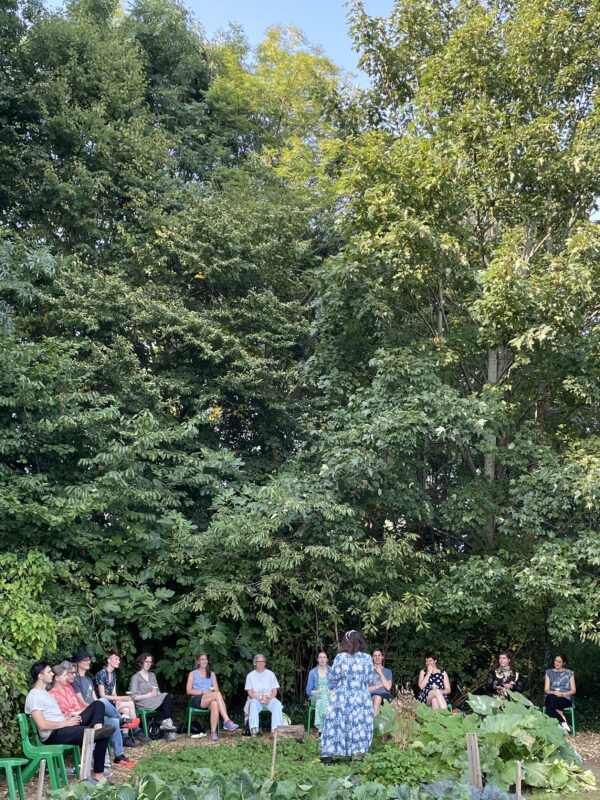
When it is my turn to read, I stand in the middle of the strawberry patch, clutching both my first poetry collection and an emerald notebook with completely new poems that I have not shared with anyone before – nature poems about uprooting, rerooting, about going on a walk without my phone, about my old garden full of bindweed. Just before I start, I realise I am feeling an almost overwhelming mix of emotions at this moment: Not just the usual nervousness and excitement of performing, but something more, something else. It feels momentous, reading poetry in person again, and to be reading it in these intimate verdant surroundings. My first book ‘how to extricate yourself’ had come out in the winter, in the middle of a hard lockdown, and any readings from it I had done up until this point had been virtual, on Zoom, by myself in my bedroom. The contrast could not have been more extreme – being outdoors now, in nature, in this sunshine, sharing food, surrounded by people and being able to see their attentive listening faces, with birds flying overhead. And it feels apt, refuelling with the things that make life worth living in a place so wholly dedicated to the production of sustenance. After eighteen difficult months of pandemic life I am so overwhelmingly grateful for it all:
For being able to share things in real life again
For JC’s magnificent new poems about tomatoes or about the bees that stopped a battle
For the kindness of the strangers and friends who have come here to listen
For the fact that places and projects like this exist
I come home from the readings with my hands full of gifts of flowers and food, my head full of new thoughts and ideas, feeling as if I had just returned from – yes, from paradise.
